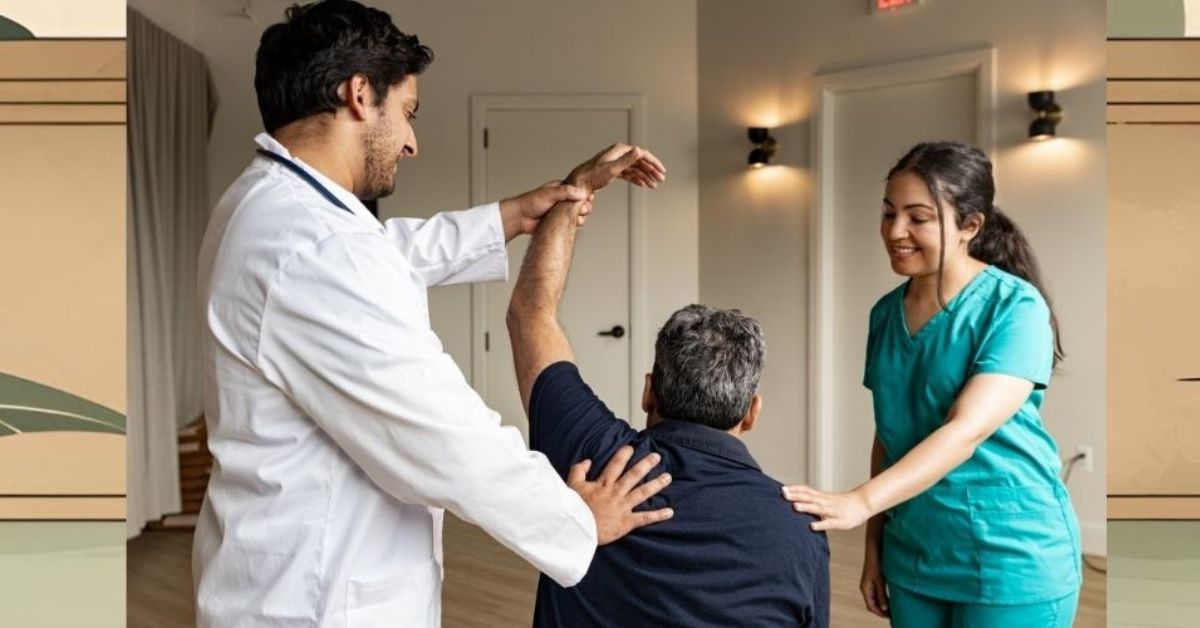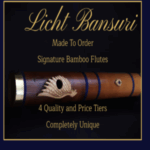What is Frozen Shoulder?
Frozen shoulder, medically termed Adhesive Capsulitis, is a painful condition in which the shoulder joint becomes stiff and inflamed, significantly restricting movement. The term “frozen” is used because the joint appears to be stuck or frozen in place, limiting both active and passive range of motion. This condition can last for months or even years and progresses gradually.
Why Does Frozen Shoulder Happen?
In modern pathology, frozen shoulder occurs when the capsule surrounding the shoulder joint thickens and tightens due to inflammation, leading to the formation of scar tissue (adhesions). This restricts the joint’s movement and causes chronic pain.
- Injury or Surgery: Immobilisation after fractures or surgeries can lead to stiffness.
- Diabetes: People with diabetes are at higher risk; the exact reason remains unclear.
- Thyroid Disorders, Parkinson’s Disease, Cardiac conditions
- Stroke or prolonged non-use of the arm
- Idiopathic: No clear underlying cause in many cases
Symptoms and Stages of Frozen Shoulder
Frozen shoulder typically develops in stages:
- Pre-Freezing / Prodromal Stage (1–3 months)
- Mild discomfort and stiffness
- Pain at night or after specific movements
- Freezing Stage (6 weeks – 9 months)
- Sharp, increasing pain
- Progressive stiffness and reduced mobility
- Frozen Stage (4 – 12 months)
- Pain diminishes
- Joint becomes significantly stiff and difficult to move
- Thawing Stage (5 months – 2 years)
- Gradual return of mobility
- Shoulder regains strength and function
Ayurvedic View: Avabahuka (Frozen Shoulder)
In Ayurveda, frozen shoulder is referred to as Avabahuka, primarily caused by Vata dosha aggravation due to:
Causative Factors (Nidana)
- Excessive cold exposure
- Irregular sleep and eating habits
- Overexertion or injury
- Poor digestion and Vata-vitiating foods
Why It Is Increasing Today?
- Prolonged Screen Time: Tech neck, poor posture, mobile usage
- Binge Watching: Continuous immobility while watching reels or shows
- Cold & Damp Weather : Aggravates Vata dosha
- Sedentary Lifestyle: Limited physical activity and bad ergonomics
- Young Population Affected: More young adults and children face early onset due to digital habits
Ayurvedic Line of Treatment (As per Samhitas)
- Snehana (Oleation)
- Swedana (Fomentation)
- Abhyanga (Medicated Massage)
- Nasya (Nasal Therapy)
- Basti (Medicated Enema) for systemic Vata correction
Ayurvedic Medicines (To be taken under supervision)
- Guggulu Formulations
- Rasnasaptakam Kashayam
- Ashwagandha, Shallaki, Eranda Sneha
- Dashamoola formulations
Dosages and medicines should be prescribed by an Ayurvedic physician as per individual constitution and condition.
Home Remedies and Self-Care
- Turmeric Water: Anti-inflammatory properties
- Garlic Milk (Lashuna Ksheerapaka): Strengthens joints
- Ginger Tea or Water: Improves blood circulation
- Ashwagandha / Clove Water: Helps reduce Vata
- Nirgundi Leaf Juice (Swarasa)
External Therapies
- Mahanarayana Thailam / Karpooradi Thailam / Prasasrinyadhi Thailam massage
- Hot Herbal Packs: Turmeric & ginger paste, or Kottamchukkadi choornam pack externally mixed with egg or water.
- Heat Therapy: After applying oil use wheat husk bags or ready-made microwaveable pads available in UK
Ayurvedic Panchakarma Centre
Most Effective management and significant results you can get if you take proper therapeutic massage from Panchakarma centre
- Abhyanga
- Patrapinda/Kizhi Sweda (leaf bolus with garlic, rice, wheat husk)
- Pizhichil and Navarakizhi therapies
Yoga and Physio Management
Physiotherapy and mild yoga are highly effective.
Physiotherapy Exercises:
- Pendulum swing
- Wall climbing (finger walking)
- Towel stretches
- Passive stretching with a cane or band
- You tube link effective ones
Simple Yoga Poses (under guidance)
- Salabhasana (Locust Pose): Strengthens upper back and scapula
- Makarasana (Crocodile Pose): Relaxes spine and shoulders
- Gomukhasana (Cow Face Pose): Opens shoulder joints
- Virabhadrasana II (Warrior Pose): Enhances strength
- Ardha Baddha Hastasana: Improves shoulder flexibility
- Surya Namaskara: General flexibility and strength
Diet & Lifestyle
Recommended Foods (Vata-pacifying)
- Whole wheat, Urad dal, Goat milk, Cow’s ghee
- Fruits: Grapes, Pomegranate, Mango, Banana, Apple
- Healthy vegetables, warm meals
- Protein diet
- Warm water and herbal teas regularly
Lifestyle Tips
- Avoid cold food and drinks
- Take regular screen breaks
- Maintain proper posture during work and sleep
- Include stretching, mild walking
- Prioritise good sleep and stress reduction
Precautions
- Always get the condition diagnosed by a doctor
- Take medications under guidance of qualified Ayurvedic physician
- Yoga and exercise should be performed with expert supervision
Conclusion
Frozen shoulder is a debilitating yet manageable condition when diagnosed early and treated holistically. Ayurveda offers an integrated solution through internal medicines, external therapies, and lifestyle correction, complemented by yoga and physiotherapy. Addressing it early with the right approach restores strength, motion, and quality of life.
AI Ayurveda Imma – Your Guide to Ayurvedic Living in the UK | Zen Wellness
Be slow in choosing, sure in living – Choose Ayurveda.






